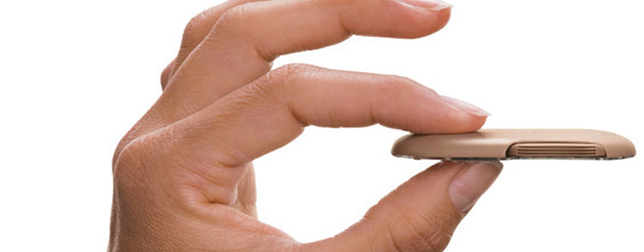CeQur, a Swiss medical device company dedicated to helping people with diabetes manage their condition, announced that it has acquired select assets of Calibra Medical, Inc., one of the Johnson & Johnson Diabetes Care Companies. Although terms of the deal were not disclosed, CeQur has acquired an exclusive global license for the technology.
Read more Valeritas’ V-Go Wearable Insulin Delivery Device Shows Promise for Type 2 Diabetes Patients
Selling of its Calibra product (marketed as OneTouch VIA™, but never launched) to CeQur shows that Johnson & Johnson is continuing to move out of the diabetes business.
“CeQur is dedicated to simplifying insulin dosing for people with diabetes, so that they can live healthier, more satisfying lives,” said Robert Farra, chief executive officer of CeQur. “Clinical studies and real-world experience have shown that wearable, on-demand insulin delivery provides an ideal solution to the pervasive challenge of mealtime insulin delivery. The Calibra device is a perfect complement to PAQ, our basal and bolus insulin-infusion device. Both wearable devices provide simple, discreet, three-day insulin delivery without the barriers and discomfort created by injections.”
CeQur is working on a similar insulin-delivery wearable. The company said it will launch OneTouch VIA under a new name in mid-2019.
Diabetes, which causes blood sugar levels (HbA1c) to rise to threatening levels, is reaching epidemic proportions. The disease is sometimes referred to as the “silent killer,” because so many people aren’t aware they have the disease and the signs and symptoms may not even be noticeable. According to the latest CDC report, more than 100 million people in the United States are now living with diabetes or prediabetes. Approximately 70% of insulin users in the U.S. do not achieve HbA1c levels below 7 percent, which is considered reasonable to prevent diabetes complications.
Basal and bolus insulin
The basal dose of insulin, also known as background insulin, tries to keep blood sugar (glucose) levels at consistent levels during periods of fasting. When we’re fasting, our body releases glucose into the blood to our cells.
A bolus insulin is taken specifically during meal times to keep blood sugar levels under control following a meal. This type of insulin needs to act quickly, so short or rapid acting insulins are used.
The Study
A global 62-site clinical study was conducted to compare the Calibra device to insulin pens to initiate and maintain bolus insulin dosing among 278 people with type 2 diabetes. The results of the study which were presented at the American Diabetes Association 2018 Scientific Sessions, showed that the Calibra device provided the user positive clinical benefits with less glycemic variability than pens. It also demonstrated significantly higher ease-of-use, safety and patient satisfaction scores.
“Basal and bolus insulin therapy works when we have the tools to determine the appropriate insulin doses and deliver them in a convenient way,” said Richard M. Bergenstal, MD, endocrinologist and executive director of the International Diabetes Center in Minneapolis, Minnesota. “Results from the Calibra clinical study were quite impressive, showing that the device provides an easy way for patients to deliver bolus insulin at mealtimes on top of an individualized basal insulin injection. Having options available for patients that makes insulin delivery easier, more discreet and convenient is one way to help improve diabetes management.”
Read more Medtronic’s Smartphone-Connected CGM System Gets FDA Approval
CeQur’s executive chairman Eric Milledge said the device is well designed and produces impressive clinical results. “The number of people with diabetes who require insulin will continue to grow. Given the proven benefits of this device, as well as the range of patients it can support, CeQur will improve the health and simplify the lives of these individuals,” he said.










